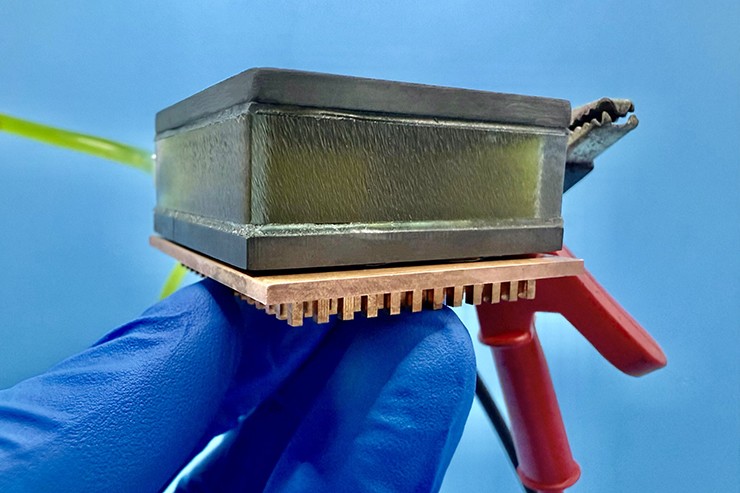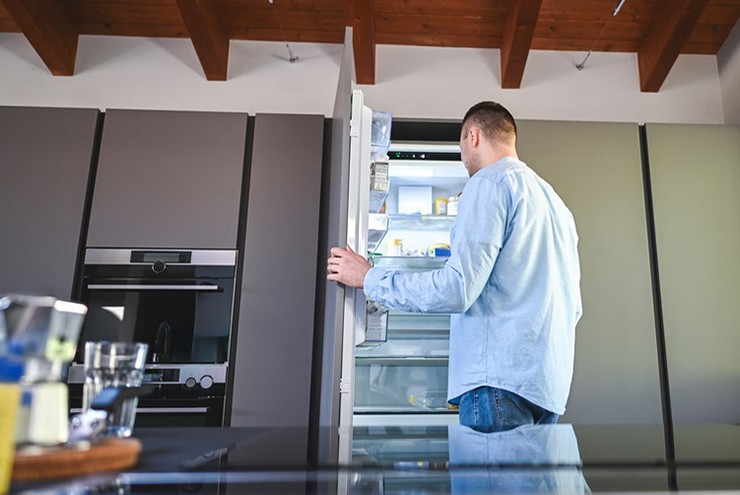50s-era refrigerator technology is finally getting replaced
Published in the journal Joule on January 30, the technology relies on electrochemical cells that create a cooling effect through a reversible electrochemical reaction. Compared to traditional cooling methods in today's refrigerators, electrochemical cell cooling is not only energy-saving but also has the potential to expand applications, from personal cooling devices to large-scale industrial systems.

Electrochemical cells could power refrigerators in the future.
Electrochemical technology is becoming a part of our daily lives thanks to its ability to provide clean electricity and low-energy cooling, according to lead author Jiangjiang Duan of Huazhong University of Science and Technology in Wuhan, China. Electrochemical batteries work by using heat from an electrochemical reaction to generate electricity. When an external current is applied, this process can be reversed and produce a cooling effect.
Although previous studies have shown that electrochemical cells have limited potential for generating cooling power, Duan's team has succeeded in optimizing the chemistry used to improve cooling performance. 'We have developed a rational design strategy for the thermoelectric electrolyte that enables record-breaking cooling performance and has the potential for practical applications,' said Duan.
This cooling technology is based on an electrochemical redox reaction involving dissolved iron ions. During this process, the iron ions absorb and release heat, creating a cooling effect on the surrounding electrolyte solution. The research team improved the cooling capacity of the hydrogalvanic cell by 70% by using a hydrated iron salt containing perchlorate, which helps the iron ions dissolve and dissociate better.

New refrigeration technology makes refrigerators cheaper and more environmentally friendly.
The optimized system was able to cool the solution to 1.42 K, a significant improvement over the 0.1 K cooling capability of previous electrochemical systems. The team plans to continue improving the system design and explore potential commercial applications. 'We are working hard to commercialize this technology, and are looking for new mechanisms and materials to enhance the cooling performance,' Duan stressed.
In the future, Duan said his research team will develop various refrigerator models for potential applications and seek opportunities to collaborate with innovative companies to promote the commercialization of electrochemical technology.
You should read it
- ★ Summary of the hottest tech news in the 4th of September
- ★ Here's a simple but groundbreaking way to make lithium batteries 'last 750% longer'
- ★ Top 5 best-selling Inverter refrigerators today
- ★ Korea develops battery technology that fully charges in seconds
- ★ Cause and remedy when the refrigerator is sweating, condensing steam